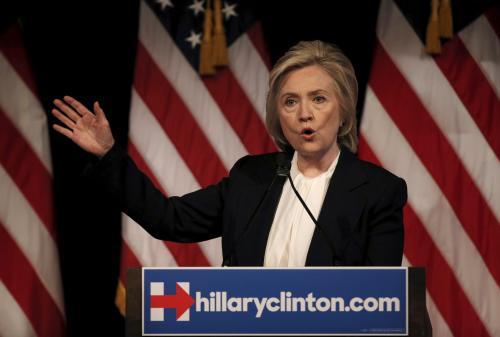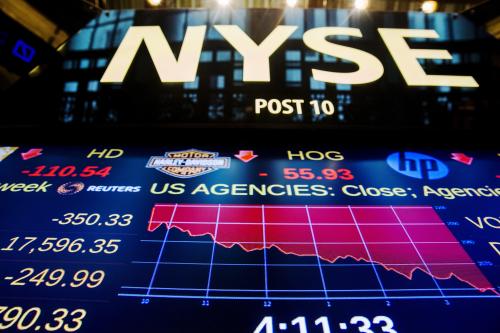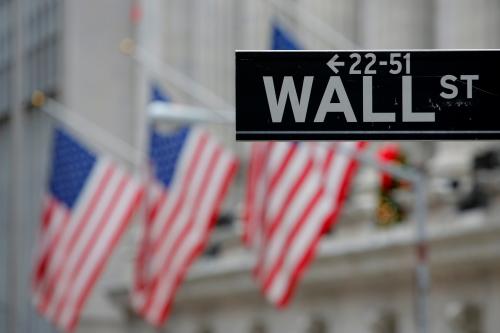The effects of income inequality have been felt throughout society but they are especially evident in the current coronavirus crisis. For instance, workers in the information economy are able to telework and draw their salaries, but workers in the service sector are either unemployed or at great risk as they interact with customers during a pandemic. In Chicago 68% of deaths from the virus are among African-Americans who make up only 30% of the city’s population, and in Wisconsin, a state with a small (6%) African American population, they constitute nearly 50% of deaths.
The emergency legislation passed to deal with coronavirus marks the first time in many years that lawmakers have taken steps to curb income inequality. The $2-trillion-dollar package Congress passed late last month prohibits some of the legal but most egregious abuses of 21st century capitalism for companies getting government aid: stock buybacks and executive compensation. Corporations that get federal loans will not be able to use the money for stock buybacks for the term of the loan plus an additional year. Executive compensation has been limited, and for the first time the law defines compensation as “bonuses, stock awards and other benefits, rather than just salaries, which often make up only a small portion of executive compensation.” Again, the limits hold for the duration of the loan and one extra year and in the case of the airline industry for two extra years. Senate Republicans initially opposed the provisions but Democrats held their ground, forcing another vote until the Republicans gave in. Even President Trump came out in favor of prohibiting stock buybacks with the loan money.
While the law does not go as far as some Democrats would have wished, it is an important and critical camel’s nose under the tent. Going forward we should apply the lessons from these provisions to thinking carefully about how we manage a capitalist system that has gotten out of control. In the 1960s, a period of widespread prosperity in America, the ratio between executive pay and worker pay was 18:1. As the Economic Policy Institute’s graph below shows, it skyrocketed in the 1990s, eventually reaching astonishing heights at the beginning of the new century. Today, the ratio stands at 221 to 1, lower than two decades ago, but still very high.
CEO-to-worker compensation ratio (options granted and options realized), 1965–2011
 Source: Economic Policy Institute
Source: Economic Policy Institute
The most commonly cited reasons for income inequality are frustrating, mainly because they are too general for easy policy solutions. But in this bill, lawmakers realized that while they would not be able to control the macro forces of globalization and automation they could try to rein in some of the most pernicious aspects of the new unequal economy. These fall under the rubric of “short-termism,” a philosophy that celebrates short-term corporate gains for investors over longer-term growth that could benefit a wider number of people. Among the chief culprits are stock buybacks, executive compensation, and the rise of “activist investors,” otherwise known as “vulture capitalists.”
Stock buybacks
Over the past three decades, the share of resources corporations use to repurchase their own shares has soared. As William A. Galston and I wrote in a 2016 Brookings paper:
“For the 454 companies listed continuously in the S&P 500 between 2004 and 2013, University of Massachusetts economist William Lazonick found stock buybacks consumed 51 percent of net income and 35 percent of dividends. Excluding the recession years 2001 and 2008, buybacks and dividends taken together have averaged 85 percent of net earnings for all corporations since 1998.”
These buybacks reward investors and CEOs only. Money that could be invested in worker training, worker benefits, worker salaries or in research and development to grow the company goes instead to investors and executives. This came to light in the aftermath of President Trump’s massive corporate tax cut, the Tax Cuts and Jobs Act of 2017 (TCJA). There were good reasons for the cut; at the time the United States had the world’s highest corporate tax rate, and the rationale was to increase American competitiveness globally. Initially, some companies gave bonuses to their workers, but once the spotlight was off they engaged in an orgy of stock buybacks. Forbes Magazine, not exactly a liberal, left-wing publication, summed up the situation as follows:
“The underlying logic for the TCJA was that allowing companies to keep a greater share of profits, would stimulate investments in long term growth. Instead, the dominant company response to the TCJA was stock buybacks. For the first three quarters of 2018, buybacks were $583.4 billion (up 52.6% from 2017). In contrast, aggregate capital investment increased 8.8% over 2017, while R&D investment growth at US public companies increased 12.5% over 2017 growth.”
Executive compensation
Stock buybacks are a factor in the enormous increases we’ve seen in executive compensation. In 1982, the Securities and Exchange Commission issued a new rule—10b-18 of the Securities Exchange Act—that enabled corporate managers to purchase large quantities of their company’s stock without fearing that the SEC would accuse them of stock-price manipulation.[1] The new rule allowed CEOs to profit personally from stock buybacks. William Lazonick has conducted pioneering studies on this topic and recommends that this rule be dramatically curtailed or reversed outright. If ordinary Americans are not allowed to engage in insider trading based on non-public information, why should company managers be allowed to do so? Writing in the Harvard Business Review, Lazonick says (emphasis added):
“Why are such massive resources being devoted to stock repurchases? Corporate executives give several reasons, which I will discuss later. But none of them has close to the explanatory power of this simple truth: Stock-based instruments make up the majority of their pay, and in the short term buybacks drive up stock prices. In 2012 the 500 highest-paid executives named in proxy statements of U.S. public companies received, on average, $30.3 million each; 42% of their compensation came from stock options and 41% from stock awards.”
Activist investors: “vulture capitalists”
Finally, vulture capitalists have faced heavy criticism in recent years. They typically buy a controlling stake in a corporation, cut jobs and other costs to drive up the share price, and then get out—often leaving a less healthy business behind. Their economic rationale is that they will keep inefficient or incompetent management on their toes. But the problem with activist investors is that they are all too often more interested in the short-term process of pumping up stock prices through job layoffs and other cost-cutting measures than they are in the long-term work of building a company. Thus, in recent years they have become more famous—or infamous—for destroying companies and jobs than for saving them from incompetent management.
Average citizens have come to see corporate takeovers as synonymous with job losses. One example comes from the 2012 presidential campaign. President Obama’s campaign released an ad painting his opponent, Mitt Romney (formerly of Bain Capital) as a job destroyer, not a job creator. One ad featured workers from the GST Steel plant in Kansas City, Missouri. The ad claims: “After purchasing the company, Mitt Romney and his partners loaded it with debt, closed the Kansas City plant and walked away with a healthy profit, leaving hundreds of employees out of work with their pensions in jeopardy.”
While some activist investors have probably done good for the companies they took over, there are many whose activities have earned them the name “vulture capitalists.” Two activist investor groups, Pershing Square Capital Management and Vornado Realty Trust gained control over the giant retailer J.C. Penney. They slashed more jobs than anyone thought they would and inserted new management; nonetheless, J.C. Penney is still not profitable.
The COVID-19 rescue package did not take on the activities of vulture capitalists, but their tactics are coming under scrutiny in other places. Recently, for instance, the University of California’s investment office announced it was moving to stop investing in Elliott Management, one of the nation’s most notorious activist investors. Prompting that divestment were moves on the part of Elliott to gain a significant stake in AT&T which prompted management to begin cutting more than 4,000 jobs and initiating $30 billion in stock buybacks.
Elliott Management’s behavior is typical of activist investors. It is made possible by the philosophy and legal underpinnings of the stock buyback and executive compensation—the strategy is often all too familiar: cut costs, pump up the stock price, return quick dividends to investors and leave the workers with nothing. The provisions in the COVID-19 bill are small but significant steps in responding to and addressing the corporate philosophy of short-termism that has contributed to so much income inequality. And the actions of the University of California are a small step towards getting other institutional investors to find other, less damaging, investments.
If this trend keeps up, once we return to normal it may be one good result of the awful pandemic we are in.
[1] Richard L. Hudson, “SEC Eases Way For Repurchase Of Firms’ Stock,” The Wall Street Journal, November 10 1982.
This work is licensed under the Creative Commons Attribution-NonCommerical-NoDerivatives 4.0 International License. To view a copy of the license, visit https://creativecommons.org/licenses/by-nc-nd/4.0/.







Commentary
How COVID-19 could push Congress to start reining in vulture capitalism
April 9, 2020